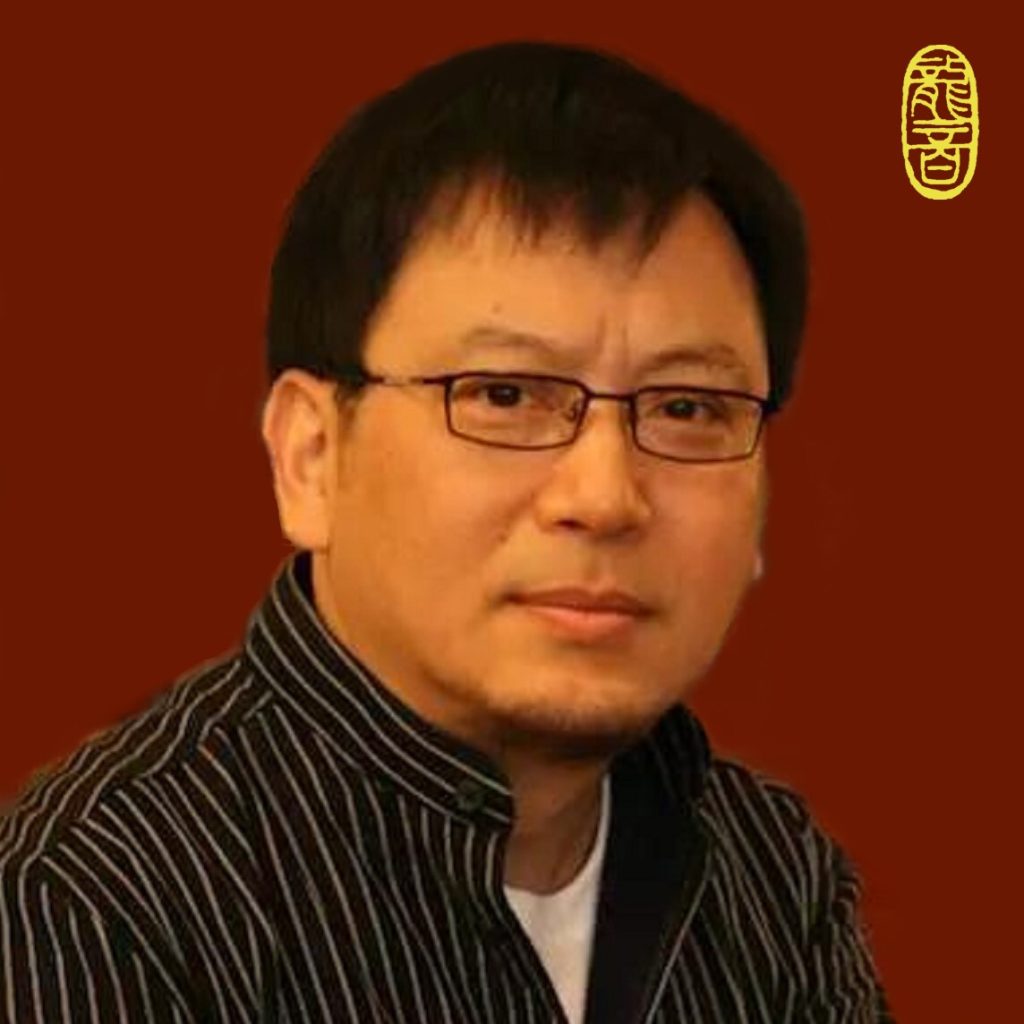
A0014 郭文景GUO Wen-jing (1956年2月1日~)
郭文景,作曲家、教育家。1956年2月1日,出生於四川省重慶市。1968年,開始學習小提琴。1970年,考入重慶市歌舞劇團,成為樂隊中的一名樂手。1977年,考入中央音樂學院作曲系師從黎英海、蘇夏。1983年,畢業後回重慶工作,曾任重慶市音協副主席。1987年4月,成功在北京舉行了個人交響樂作品音樂會,演出了《蜀道難》、《川崖懸葬》等作品。1988年,《蜀道難》《川崖懸葬》在英國格拉斯哥由BBC交響樂團和合唱團演出。1990年,調回中央音樂學院作曲系任教,先後擔任作曲系副主任、主任。1994年6月,在荷蘭藝術節上演,歐洲演員與樂隊用中文首演了郭文景的歌劇《狂人日記》。1996年,應荷蘭藝術節委約創作了室內樂《甲骨文》,並於6月11日在阿姆斯特丹音樂堂首演。1997年,應香港特別行政區政府委約,為「慶祝香港迴歸慶典」創作了交響序曲《御風萬里》,並於7月1日在香港紅磡體育館首演。2002年,在美國林肯中心藝術節上舉行了個人專場音樂會。2003年,被評為第六屆北京國際藝術節「年度藝術家」。2006年,受德國Musik viva委約創作了《二胡協奏曲》;同年,中國廣播民族樂團在北京音樂廳舉行了郭文景民樂作品專場音樂會。2008年,受邀為北京奧運會開幕式《文字》創作音樂。2018年10月,參加由美國巴德音樂學院與中國中央音樂學院共同打造的首屆中國當代音樂節,作品《藏》在紐約卡內基音樂廳上演。2021年10月2日,由中央民族樂團最新創作的主題民族音樂會,在國家大劇院音樂廳奏響其器樂協奏曲《血肉長城》。2022年10月5日,郭文景擔任作曲的音樂詩劇《大河》(交響樂版)在北京中山公園音樂堂上演。郭文景深受四川文化影響,經常把無調性的創作技法融入四川民歌風格的作品中。所寫歌劇《狂人日記》在數個國家的歌劇院演出過。被稱為是「唯一一位未曾在國外長期居住而有國際聲望的中國作曲家」。
GUO Wen-jing (February 1, 1956 – )
GUO Wen-jing is a composer and educator. He was born on February 1, 1956, in Chongqing, Sichuan Province, China. He began learning the violin in 1968 and joined the Chongqing Song and Dance Troupe as a musician in 1970. In 1977, he entered the Composition Department of the Central Conservatory of Music in Beijing, studying under LI Ying-hai and SU Xia. After graduating in 1983, he returned to Chongqing and served as the Vice Chairman of the Chongqing Musicians’ Association. In April 1987, he successfully held a personal symphonic concert in Beijing, featuring his works such as “Difficult Road in Shu” and “Cliffside Burial.” In 1988, “Difficult Road in Shu” and “Cliffside Burial” were performed by the BBC Symphony Orchestra and Choir in Glasgow, United Kingdom. In 1990, he was transferred back to the Composition Department of the Central Conservatory of Music as a faculty member and later served as the Deputy Director and Director of the Composition Department. In June 1994, his opera “Diary of a Madman” was premiered in the Netherlands during the Holland Festival, with European actors and orchestras performing in Chinese. In 1996, he was commissioned by the Holland Festival to create the chamber music piece “Oracle Bone Inscriptions”, which premiered on June 11 at the Concertgebouw in Amsterdam. In 1997, he was commissioned by the Hong Kong Special Administrative Region Government to compose the symphonic overture “Imperial Wind, a Thousand Miles”, which premiered on July 1 at the Hong Kong Coliseum as part of the “Celebration of Hong Kong’s Return”. In 2002, he held a solo concert at the Lincoln Center Festival in the United States. In 2003, he was named the “Artist of the Year” at the 6th Beijing International Arts Festival. In 2006, he was commissioned by Musik viva in Germany to create the “Erhu Concerto”, and the China Broadcasting Chinese Orchestra held a solo concert featuring GUO Wen-jing’s works for Chinese instruments at the Beijing Concert Hall. In 2008, he was invited to compose music for the opening ceremony of the Beijing Olympics, titled “Texts.” In October 2018, his work “Tibetan” was performed at Carnegie Hall in New York as part of the inaugural China Contemporary Music Festival, jointly created by Bard College in the United States and the Central Conservatory of Music in China. On October 2, 2021, his instrumental concerto “The Great Wall of Flesh” was performed at the National Grand Theater in Beijing as part of the thematic national music concert created by the China National Traditional Orchestra. On October 5, 2022, GUO Wen-jing’s music poem drama “The River” (symphonic version) was performed at the Zhongshan Park Concert Hall in Beijing. GUO Wen-jing is deeply influenced by Sichuan culture and often incorporates atonal compositional techniques into works with Sichuan folk song styles. His opera “Diary of a Madman” has been performed in several countries. He is known as the “only Chinese composer with international reputation who has never lived abroad for an extended period.”
